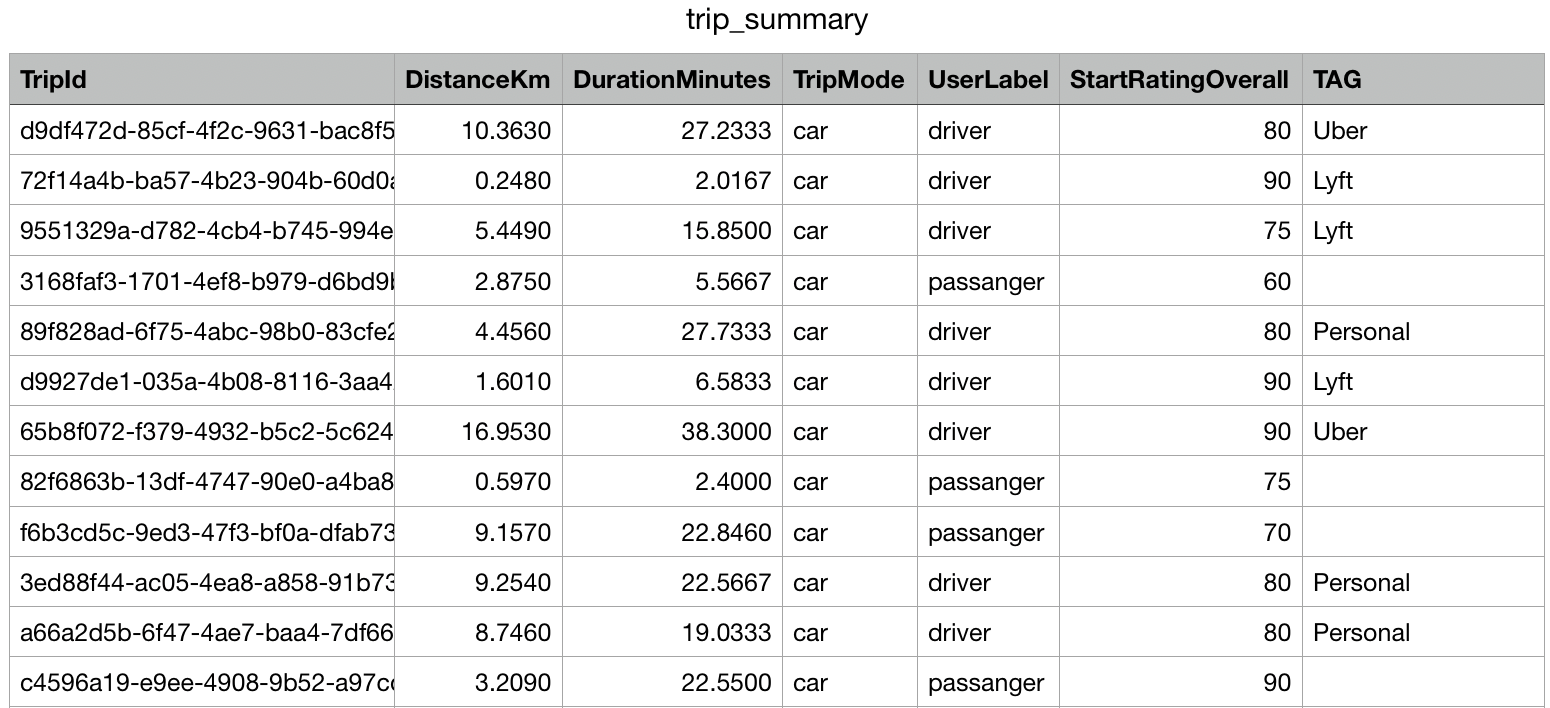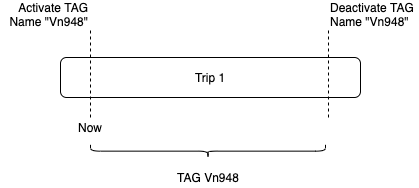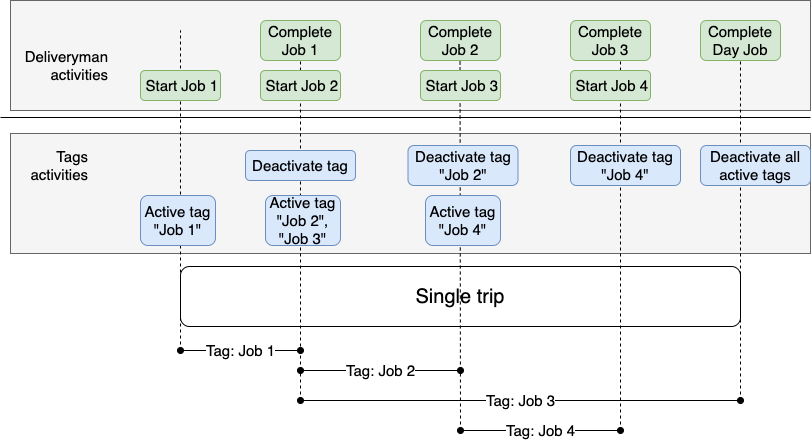Tagging Trips
Introduction
TAG feature allows you to tag a trip with your identifiers, combine several trips into a single segment, split one trips into several segments or even extract a part of a trip. Then Tag can be used as a parameter in Scoring & Statistics APIs to get information by tags
There are 2 type of TAGs available:
- Trip TAG (RichTag) - it can be applied to any recorded trips. there is no time limit so that you can do it for old trips as well.
- Period TAG (FutureTrackTag) - it can be applied for a period of time, starting from now. This tag can be applied for the past periods.
🎉 Use cases
- Rental car - split trips and statistics by segments Description
- Combine several trips into a single segment Description
- Extract the part of the trip Description
- Split a trip into several trips with a different tag id Description
Setting up a Tag
Trip tag
Trip tag for iOS app
Trip tag for Android app
Period tag
Permissions in iOS
Permissions in Android
Trip Tag
Use-case
Rental car - split trips and statistics by segments
Trip TAG - Rental car company rents out a car to a worker who works for multiple transportation companies and can do private driving as well, The company wants to see statistics on how the driver performs for different companies. Tag helps him to mark trips with different identifiers and get necessary statistics respectively.
There are no restrictions on the number of TAGs per trip, TAG's name, and time when a trip is tagged.

Period Tag
This type of Tag can be activated and deactivated only before or during a trip.
Use-case
Transportation company - combine several trips into a single segment
- To combine several trips under a single TAG - A logistic company that specializes in intercity deliveries wants to get statistics by orders. So, when this company gets an order to deliver goods from Sydney to Melbourne it can take several days that means several trips. To get statistics by the order they combine several trips under one TAG by activating the tag when a driver accepts his job/picks up goods, and deactivating TAG when the driver completes his job.

Insurance company - pay per minute insurance
- to extract a part of the trip - an insurance company has to pay per minute insurance. Customers can activate and deactivate insurance at any time. The price for the insurance depends on driving behaviors and the time of being insured in the previous month. They use a policy number as a tag name and activate and deactivate every time when the customer turns on and off insurance.

Last-mile delivery company - split a trip into small segments and link it to its internal order ID
- The deliveryman goes along his planned route and delivers parcels - fulfills orders. He spend a less than 2 minutes passing a parcel to a client. From the tracking point of view, the driver has one long track. Tags allow you to mark a trip into segments - Delivery parcel 1, Delivery parcel 2, etc. Then you can get statistics and trip details for each of the segments.

Updated about 4 years ago
